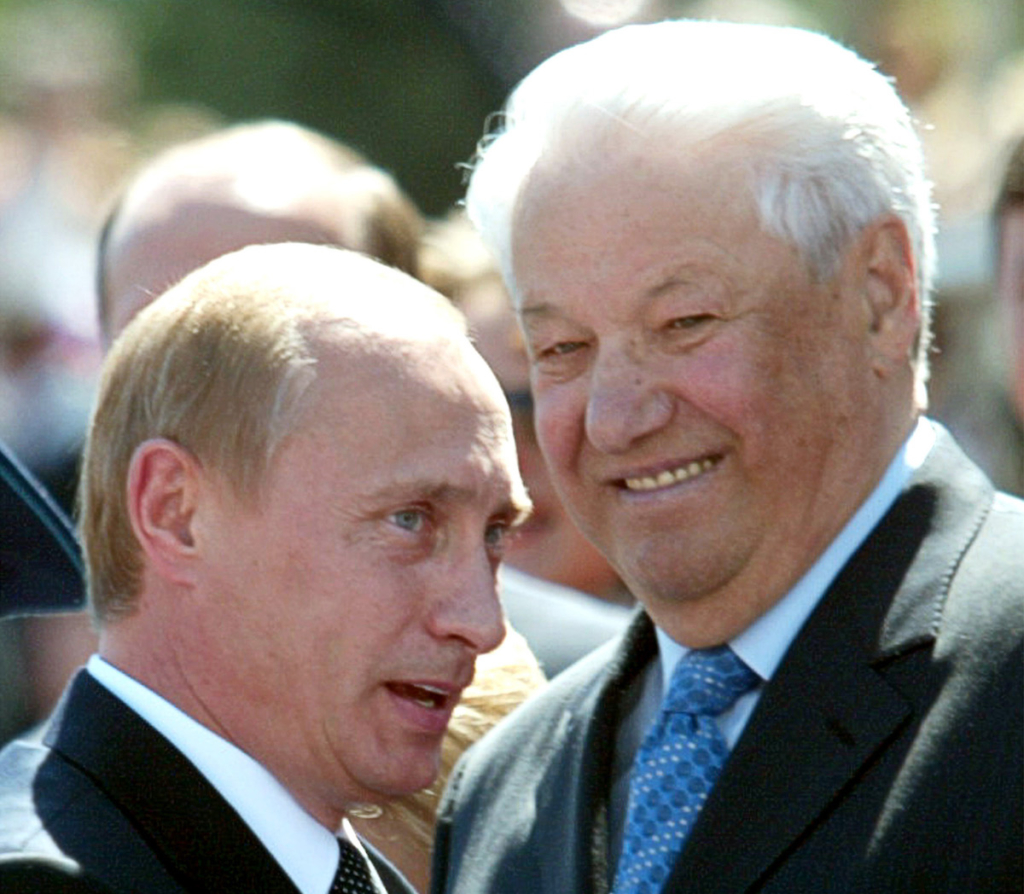20 years of Vladimir Putin: from head of the Russian security service to president
Putin: from KGB to president
Twenty years ago in July 1998, the current president of Russia, Vladimir Putin, became the director of the Federal Security Service (FSB) of the Russian Federation. Within a year and a half he rapidly advanced in his career, becoming prime minister and, eventually, president of Russia.
In an interview with Radio Free Europe/Radio Liberty, the editor of the Putinism site, Artyom Kruglov, spoke about what Vladimir Putin did in the 1980s and 1990s.
Putin’s activities in the 1980s
This rare footage were taken in 1998. In it, the then head of the Russian government Sergey Kiriyenko introduced the new chief (Putin) to his subordinates. In the footage Putin says: “For me, returning to state security structures is a return to my native home.”
Putin’s comment on ‘returning to [his] native home’ was not just an empty one. He worked for many years in the KGB’s Fifth Department (the Committee for State Security, the forerunner of the FSB). The Fifth Department specialised in ‘fighting ideological sabotage’. In other words, it fought with dissent in the Soviet Union.
“At the end of the 1980s Putin was mainly involved in paperwork in Dresden. He looked over thousands of dossiers of various individuals, looking for suitable people to recruit – mostly among foreign students studying in Dresden and west Germans visiting relatives,” Artyom Kruglov said.
Cooperation with terrorists
Kruglov said: “Putin participated in a Soviet Union programme which supported international terrorism. The future president of Russia cooperated, for example, with Dietmar Clodo who carried out terrorist attacks in West Germany while in the Red Army Faction.”
Kruglov further believes that the KGB not only supplied terrorists with weapons, money, and fake documents, but that they also trained them and sent them abroad: “In other words, Putin is a professional accomplice to terrorists.”
Chechen criminal groups and Putin and Kadryov’s old contacts
Kruglov also spoke about Chechen organised crime which popped up in 1980s Moscow. The group, called Lazan, carried out a number of assassinations and terror attacks at the end of the 1990s and beginning 2000s.
“What did Putin bring that was new to … the Lazan group? As I understand, the group was used for operations during the second Chechen war. Lazan was founded through the war. They killed Anna Politkovskaya [an investigative journalist for the Russian Novaya Gazeta media outlet], who pestered the Kremlin with her reports.
“These guys did a lot of dirty work. The remnants of the Lazan group came under the control of the Kadyrov clan, which centralised all Chechen organised crime. This, too, was convenient for Putin.”
Terrorist attacks in the run-up to the 2000 elections

Putin was the director of the FSB up until August 1999, when Yeltsin appointed him as prime minister.
A number of tragedies took place during this period.
Chechen fighters entered Dagestan, and in September 1999 a series of terror attacks took place such as explosions in residential buildings in Buynaksk, Mosow and Volgodonsk. More than 300 people lost their lives.
Later, in September 2000, more than 200 people died in further explosions across Russia. A Russian court later declared that the crimes had been committed by Chechen terrorists, and that these explosions were one of the main arguments for the beginning of the operations in Chechnya known as the second Chechen war.
Some experts, including Kruglov, believe that the explosions were organised by the FSB and personally overseen by Vladimir Putin. The main argument is that the explosions helped to garner support for the war in Chechnya, which helped Putin strengthen his position at the head of the state.
Kruglov used the following example to support his claim:
On 22 September 1999, a local resident in Ryazan noted that unknown individuals were dragging bags into the entrance of a residential complex. There was white powder and a timer in the bags. The threat was neutralised, and an analysis was quickly performed which showed that the bags contained hexogen, an explosive substance. Two days later the FSB stated that the materials in question were not explosives, but rather sugar, and that the operation had been performed as a training exercise for special service units.
“How is it that three FSB employees were carrying out a ‘training exercise’ in a residential sector with sugar, in which hexogen was discovered as was made clear by the analysis? Why did nobody know about these training exercises? Not only did they not know, but the local Ryazan FSB also launched a criminal case on charges of ‘terrorism’. How can it be training when there was an official criminal case opened on such a serious charge which resulted in dozens of people spending the night on the street?” Artyom Kruglov asked.
He responded:
“The resident that discovered the bags described their content as a mix of a granular substance and thin noodles of a yellowish color. Hexogen looks like a powder similar to sugar, and the ‘yellow noodles’ are trinitrotoluene [TNT] in granular form. This is the same mix that blew up Russian homes in 2000.”
Vladimir Putin became president of Russia in 2000. In March 2018, he entered his third term as president, having served as prime minister from 2008 to 2012.


















